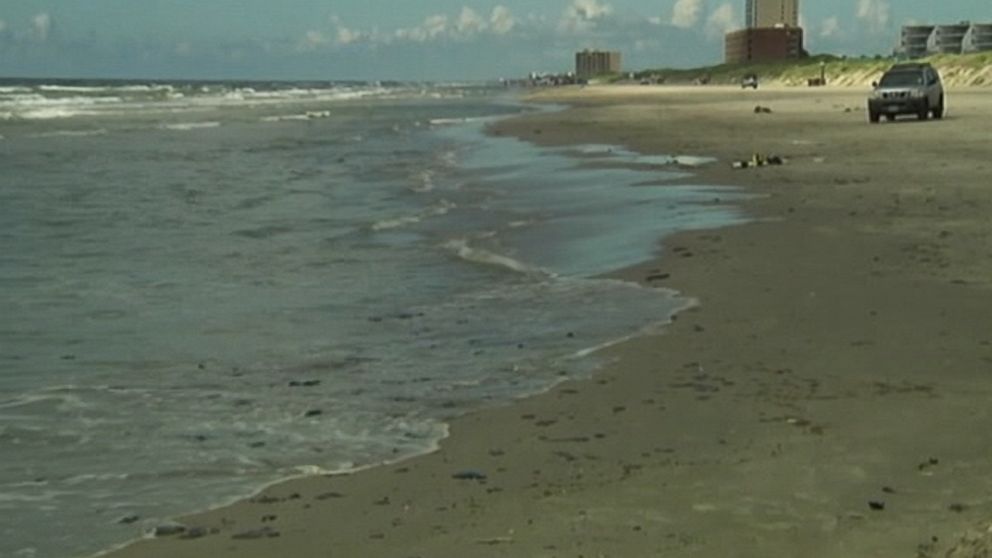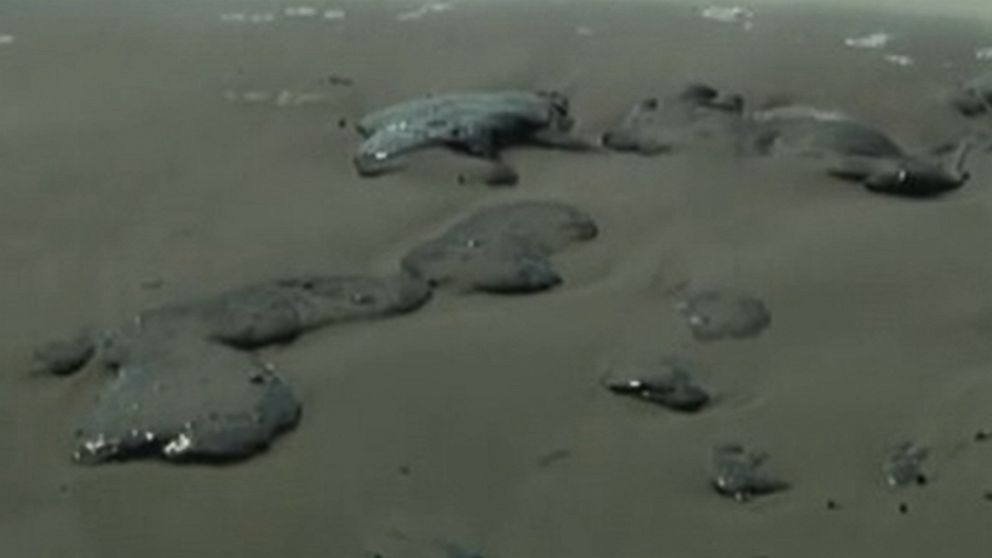Mysterious Tar Balls Wash Up on Texas Coastline
Officials have yet to identify the source of the crude oil.
— -- Hundreds of tar balls have washed up along the southern Texas coast, but officials have yet to identify the source of the material.
“We don’t have a source for the oil,” Jim Suydam, a spokesman for the Texas General Land Office, told ABC News today, noting that samples of the substance have been sent to the U.S. Coast Guard for analysis. So far, their only conclusion is that it is a “crude oil product” that came from “two different sources.”
“It is unlikely the source is from Texas waters, but possible sources include offshore rigs, a pipeline, a ship, or from natural seepage,” Suydam told ABC News in a statement.
Tar balls are dense accumulations of hydrocarbons that have been mixed and rolled with sand and shells before washing ashore. The source could be natural leaks along the continental shelf, which runs 40 to 100 miles off the Texas shoreline, or the result of frequent spills that occur when crude oil is transported from one tanker to another in the Gulf of Mexico before being brought into port.

If the investigation proves the oil came from man-made sources, it will come as no surprise to Luke Metzger, director of Environment Texas, an environmental advocacy group based out of Austin.
“Oil spills are a way of life here in Texas,” Metzger said, noting that 543 spills occurred in 2012, according to the Texas General Land Office.
“It all adds up to have a big toll on the marine life in the Gulf,” he said.
Metzger argued that Texas should establish "no-take" Marine Protected Areas, which prohibit fishing, oil drilling, and other extractive uses.
“The end solution is we need to stop drilling in the Gulf of Mexico,” Metzger said.
The tar balls arrived at the peak of the turtle nesting season, according to Tony Amos of the University of Texas Animal Rehabilitation Keep, who is concerned the tar balls could prove deadly to turtles as they come ashore to lay their eggs.
"It would be definitely detrimental if they get that tar on the eggs as they lay them," Amos said. "It could be quite fatal."
Officials said they have had no reported impacts to wildlife on the Gulf Coast.

The tar balls, ranging from 3 to 20 inches wide, began washing up on Corpus Christie beaches on May 19, officials said. More tar balls washed up on Tuesday along Padre and Mustang Islands, stretching for about two thousand yards of coastline, according to the Texas General Land Office.
Rapid response teams were immediately dispersed to clean up the oil in both instances, according to a spokesman for the Texas General Land Office, who also noted that cleanup crews have collected about 10,000 gallons of crude oil off Texas beaches since May 19.
“The amount of oil collected just yesterday was 990 gallons, or roughly 23 barrels,” Suydam said today. “This is tar ball season, they wash up on the beach every summer."
In the 1970s and 1980s, tar balls frequently covered the coast as offshore production in the Gulf of Mexico boomed, according to the Texas General Land Office. Officials said they do not have enough information to determine the source of the tar balls that have washed ashore in recent weeks but expect the results of their investigation to be released within a week or so.
“If there is a responsible party found, we will seek compensation,” Suydam said.




